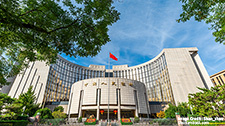EU-Taiwan Semiconductor Cooperation: Lopsided Priorities?
Johannes Nordin and Larissa Stünkel
Abstract:
The European Union (EU) seeks de facto closer cooperation on chip production with Taiwan. This was underlined during Foreign Minister Joseph Wu’s Europe Tour in 2021 and by a more recent EU Parliament delegation to Taipei amid efforts to push for a bilateral investment agreement. Having announced the Chips Act in February 2022, the EU has since held its first high-level talks with a delegation from Taiwan’s Ministry of Economy. Meanwhile, reports emerged in 2021 that the world’s largest chip manufacturer –TSMC – has been in contact with European officials about setting up local production facilities in the EU. Despite these signs of progress, it appears the EU lacks sufficient understanding of their Taiwanese counterparts’ ambitions and priorities. Besides Brussels underestimating the challenge of setting up foundries and overplaying the need to concentrate on cutting-edge chip manufacturing, the EU’s strategic ambitions are at odds with both the Taiwanese government and the islands’ tech giants. This issue brief critically examines the prospects of EU-Taiwan cooperation on semiconductors and analyzes how Taiwan and the EU can envision a concentrated partnership.
Related Publications
-
ISDP Annual Report 2023
ISDP’s Annual Report for the year 2023. We look back on 2023, a year in which tensions and conflicts captured the strategic space in ISDP’s focus areas, making headlines around […]
-
The Political Split at the Heart of Taiwan’s Struggle against Foreign Disinformation
Taiwan’s struggle against foreign disinformation and concerns about China’s impact on its 2024 election has received much international attention recently. This issue brief examines the domestic and international politics behind […]
-
Taiwan holds all the chips in US–China tech showdown
Introduction: US House of Representatives Speaker Nancy Pelosi’s visit to Taipei in August 2022 touched on the island’s sovereignty — a controversial, historical ‘red line’ in China’s foreign relations. The […]
-
Challenging Western Views: Understanding Power and Stability in East Asia; An Interview with DAVID C. KANG
Dr. David C. Kang is Maria Crutcher Professor of International Relations at the University of Southern California. A leading expert in East Asian security, international relations, and political economy, Dr. […]
-
The Economic Leash: China’s Financial Tethers and Global Power Plays
China’s emphasis on Gross Domestic Product (GDP) growth and its integration into global markets have allowed it to wield significant influence internationally. Nonetheless, this focus on rapid expansion has created […]



